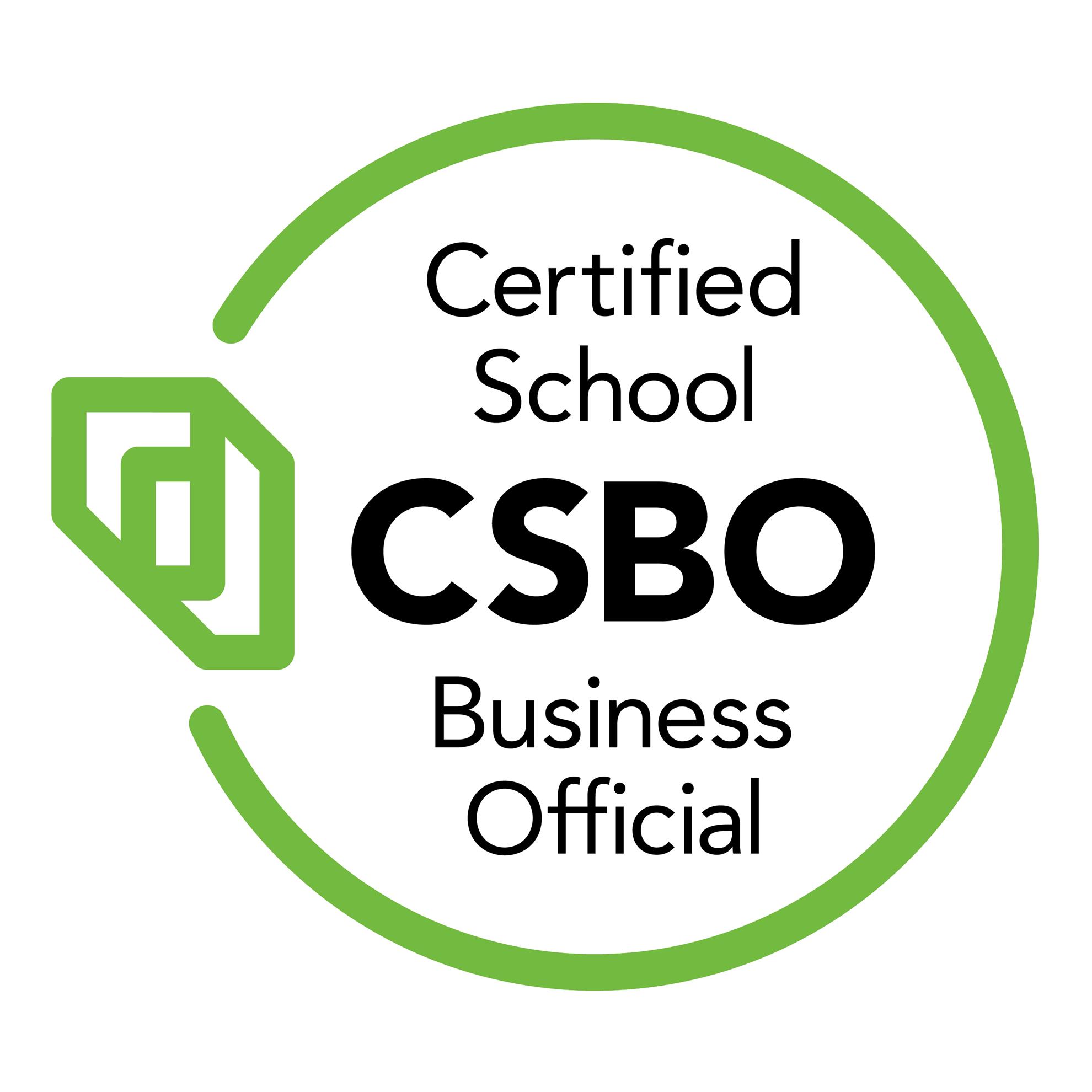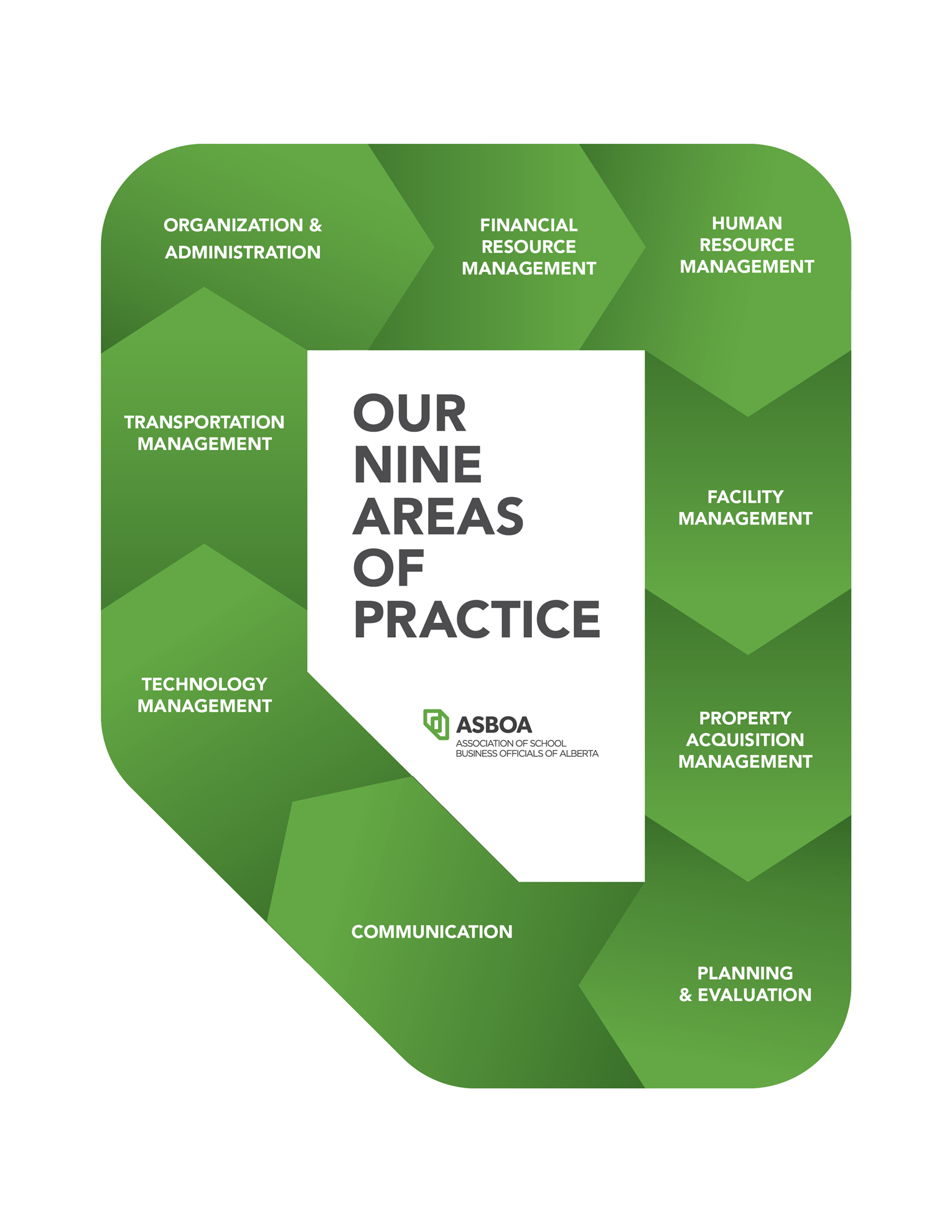Continuing education or professional development for certified school business officials is a commitment of the Association and an expectation of the public to ensure the ongoing proficiency and success of certified school business officials in the provision of corporate, financial and business services in the K-12 education system.
Continuing education or professional development are those learning activities, either formal or informal, that sustain or increase the competency of Certified School Business OfficialsTM.
- All members can record their professional learning activities and continuing education in their PD Bank in the Members only area of the website.
What is a learning activity?
- Must be relevant and appropriate to your professional role and responsibilities
- Allows for the development of new or existing competencies
In order to maintain their CSBOTM designation, members must meet the continuing education or professional development requirements contained in Article 9 of the School Business Officials Regulation (Alberta Regulation 37/2004) which reads as follow:
- Section 9 (1) A regulated member who applies for an annual renewal of registration is entitled to have the registration renewed if the applicant provides evidence that in the 3 years immediately preceding the application for an annual renewal of registration the applicant has completed at least 100 hours of continuing education or professional development activities acceptable to the Registration Committee in the practice of school business administration.
- Section 9 (2)Notwithstanding subsection (1), if a regulated member who applies for an annual renewal of registration does not meet the requirements described in subsection (1), the Registration Committee may renew the person's registration subject to any conditions that the Registration Committee considers appropriate with respect to completing those requirements.
ANNUAL REQUIREMENTS
- Reporting is based on the school year (September 1st thru August 31st)
- A declaration much be made for both annual and three-year rolling requirements.
- Each member must complete a minimum of 30 hours of new learning annually of which 15 hours must be verifiable
- Each member must complete a minimum of 100 hours over a three (3) year rolling cycle (current year and prior two years) of which 50 hours must be verifiable including 4 of those verifiable hours to be in the area of Ethics.
- Members are required to retain continuing education/professional learning records for a minimum of five years. The Registration committee may request those records at any time.
Reporting Timelines:
- The annual declaration request and link to the form is provided to members with their annual membership renewal notice in August of each year.
- The annual declaration form is available on the member dashboard in September
- Members have until September 30 of the same calendar year to file their declaration
- Failure to report by September 30 will result in a late renewal fee of one hundred and fifty dollars ($150.00)
- Failure to report and pay the penalty within 30 days after September 30 will result in the member's membership being suspended and the status of their registration to be reviewed by the Practice Review Committee.
Non-Compliance:
We recognize that there may be times an individual may not be able to meet the continuing professional learning requirements. In these situations it is important that you declare "non-comply." You may be in non-compliance for the current reporting year or possibly just for the 3-year rolling total or both. If you declare non-comply, the Registration Committee will request that you provide information regarding your plan to bring yourself into compliance by the end of the next reporting period. You will be asked to provide:
- Reason(s) why the minimum requirements were not met
- Written plan to bring you back into compliance
- Listing of verifiable and unverifiable learning activities you have done, and
- Any extenuating circumstances that may prevent you from reaching full compliance
In the event that the Registration Committee does not approve of the remediation plan, or a member has declared non-compliance and does not produce a remediation plan, the registration will be suspended and the status of the registration will be referred to the Practice Review Committee to conduct a review of the practice of the regulated member.
Failure to Report:
- Failure to report your continuing education as required under the SBO regulations by the deadline will result in a late renewal fee as set by the Executive.
- Any member who still has not submitted their information by the end of December will be contacted by a a member of the Registration Committee, as a second reminder
- In the event that the second reminder is unsuccessful, the registration will be suspended and the status of the registration will be referred to the Practice Review Committee to conduct a review of the practice of the regulated member.
CONTINUAL PROFESSIONAL LEARNING REVIEW
The Registration Committee will conduct a review of a random sample of 10% of members to ensure compliance with professional learning requirements each year, including evidence of verifiable learning an an affirmed statement for unverifiable learning.
Members selected for random audit will be required to submit documentation by the end of February in the current membership year supporting their learning activities and to produce evidence of verifiable professional learning.
What qualifies as a new learning activity?
- Did you learn something while doing this activity?
- Does the learning activity contain significant intellectual or practical content?
- Is it related to ASBOA's 9 Areas of Practice?
- Is it relevant to your current professional needs and/or long-term career interest?
- Is the activity quantifiable (expressed in terms of a specific time range)?
If the answer is yes to all of the above, then it will likely qualify as a new learning activity?
Verifiable and Unverifiable Learning Activities:
Verifiable Learning
Learning activities that result in tangible evidence that you participated in the activity and a third party would be able to verify the evidence objectively in the areas of your professional responsibility or in the ASBOA's areas of practice that provides a continuation of your knowledge or new learning.
Categories:
- Courses, seminars, conferences, webinars, employer based in house training sessions
- Formal and/or computer-based learning activities leading to a designation, degree, certificate or diploma
- Keynote speaking, instructional presentations
- Research projects, research / learning that results in a written report or publication
- Committee representation in areas that expand your professional knowledge
Verifiable documentation should support your learning activity:
- Who - Identify the provider of the activity
- What - Describe the learning activity
- When - Identify the date of the activity
- How - Connects the member to the activity
- Provide a basis for concluding that the number of reported hours is reasonable
Acceptable Evidence of Verifiable Learning
The information may help you determine if your verifiable learning activities qualify as verifiable activities and help ensure you main the required supporting documentation to support your declaration.
- Certificate of completion, academic transcript, exam results, copy of course assignment;
- Attendance record containing your name and the date of the activity (sign-in sheet;
- Confirmation of course registration (paid invoice);
- Confirmation of participation in the activity from the instructor/provider;
- Letter signed by your employer (HR department/direct supervisor) confirming your attendance (must include your name, position and the date, name, and duration of the activity).
Unverifiable Learning
- Learning activities which do not result in a product or for which no evidence exists in the areas of your professional responsibility or in the ASBOA's areas of practice that provides a continuation of your knowledge or new learning. Each of the following or other specific unverifiable learning activities is a maximum of five (5) hours per year (for clarity, you are not able to claim the full unverifiable learning requirement in any one activity).
Examples:
- On the job learning of a new software, system, procedure or technique for a professional role
- Technical reading, self study of published materials
- Casual reading of professional journals or magazines


